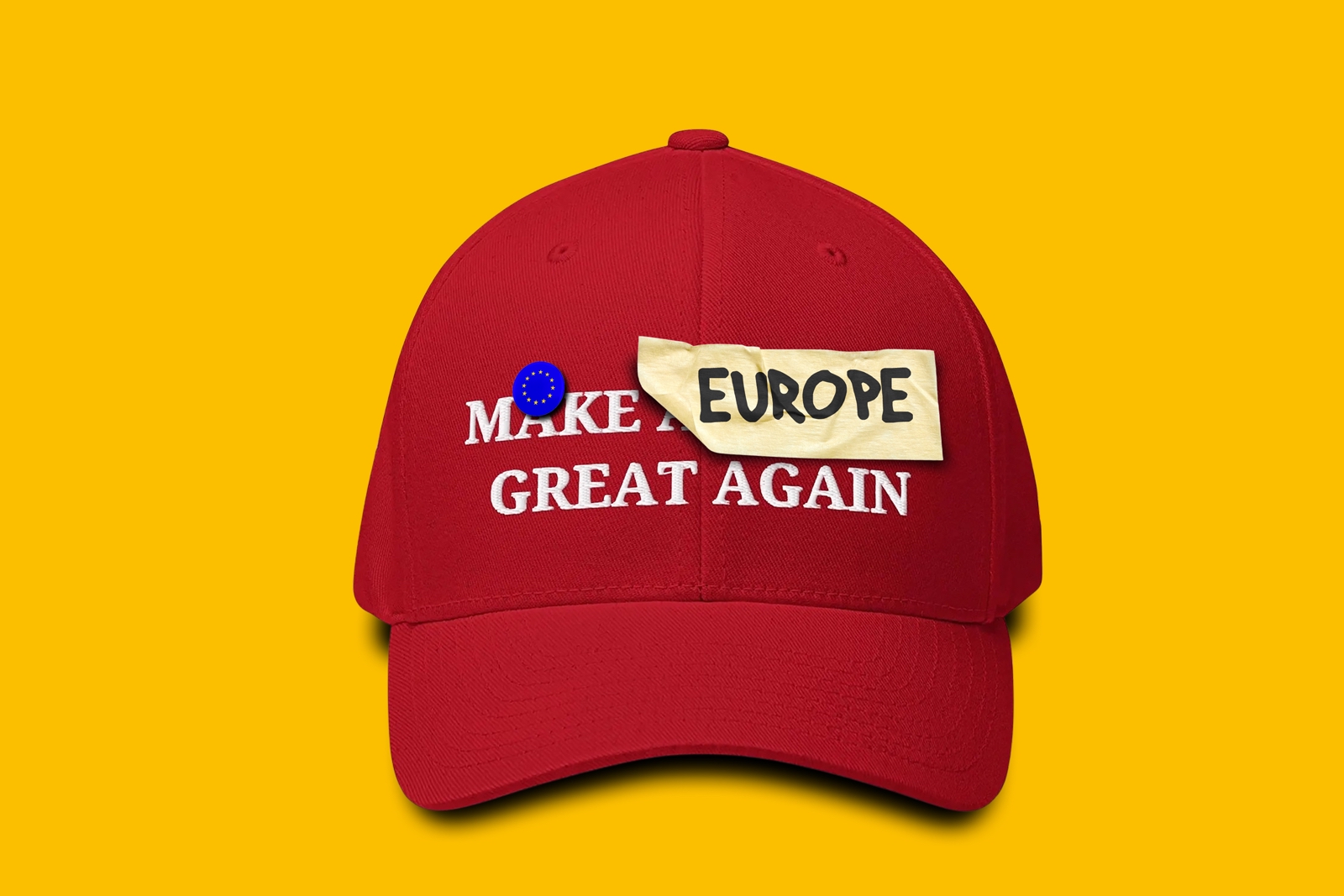
How Europe Plans to Survive Trump’s Fragile Ego
A sweeping new report contends that President Donald Trump has launched nothing less than a cultural offensive against Europe—a transatlantic struggle waged not through tariffs or troops, but through ideas, symbols, and allies. The authors argue that Trump’s MAGA movement seeks to undermine the European Union by empowering nationalist imitators across the continent and by publicly humiliating Europe’s institutions on the world stage. What they describe, in essence, is a battle for the soul of the West—one fought not over policy, but over civilization itself.
Published on September 23 by the European Cultural Foundation (ECF) and the European Council on Foreign Relations (ECFR), the report, “Reality show: Why Europe must not cave in Trump’s culture war,” sets out to measure what it calls European sentiment: a sense of belonging to a common space, sharing a common future, and subscribing to common values. In this fourth annual edition, ECFR’s Pawel Zerka draws on pan-European research and polling from all 27 EU member states to sketch the political and societal effects of the Trump administration’s approach to Europe, and to issue recommendations for how EU leaders should manage Washington in the months ahead.
According to the authors, the findings come against a backdrop of a culture war being waged on the EU-27 by the U.S. president. Zerka’s core contention is blunt: In Trump’s culture war, Europe itself, more than any single leader, party, or policy, is the target. He points to the exclusion of EU leaders from talks on ending the war in Ukraine, public attacks on mainstream parties across the continent, and what he describes as extortion of Brussels institutions during trade negotiations. Together, these moves, he argues, have thrust the bloc into a “Truman moment”: a juncture at which Europe must choose between vassalization and self-determination in its relationship with the United States.
The authors are careful not to prescribe performative defiance. “This does not mean Europe should provoke Trump at every turn,” Zerka notes. “Sometimes buying time is necessary.” Such tactics make sense, he writes, only as short-term placeholders, contingent on European leaders using the reprieve to accelerate genuine autonomy. Europe, he insists, has the assets to do so. Its “incredible strengths” should allow it to thrive even in a world order unsettled by Washington, and Trump’s culture war can be read as a challenge the EU is capable of meeting.
André Wilkens, director of the European Cultural Foundation, translates the thesis into a political injunction: “It’s culture, stupid!”—a mindset he says European leaders must adopt if they hope to blunt Trump’s next provocation. Only then, he argues, will national governments and EU institutions respond effectively; only then will party leaders frame electoral strategies that connect with citizens’ attachment to Europe, limiting the pull of Trump-aligned forces at home. For Wilkens, the report is not an exercise in “abstract utopianism” but an account of real feelings—and of Europeans’ willingness to defend them. The next seven-year EU budget, he warns, will be the bloc’s litmus test: Europe must invest across culture’s many dimensions—including media and civil society—if it wants to be “fit for the battle for Europe.”
The report’s venue underscores the point. Launched at Brussels’s aptly named House of European History, the study emphasizes the EU’s decades-long contribution across multiple sectors. It also warns that the U.S. president is seeking to reframe the transatlantic relationship around conservative touchstones, elevating “freedom of speech” as a rallying cry for allies inside the EU. The authors say European hesitancy in confronting Trump has invited this treatment. In one of its more vivid passages, the study likens the EU to Truman Burbank—the Jim Carrey protagonist in The Truman Show—suggesting European governments spend their energy reacting to crises scripted elsewhere rather than setting the agenda themselves.
Yet the mood across the bloc, the report argues, is anything but fatalistic. “European sentiment” is strong: Trust in the EU is at its highest since 2007; in nearly every member state, majorities feel attached to Europe and optimistic about its future. Citizens increasingly view the Union not only as an economic project but as a community of values, security, and shared destiny. The paradox, then, is that Europe possesses the raw material for agency even as it hesitates to exercise it.
This is the study’s principal takeaway. Despite considerable goodwill toward the EU, Europe is stuck in a Truman moment—aware of the artificial constraints around it yet wary of stepping through the exit. Flattery may have become a favored tactic in dealings with the notoriously thin-skinned U.S. president, but the authors warn, Trump’s well-documented disdain for Europe—and his record of threats toward its members—cannot be wished away. Refusing to close the gaps in Europe’s autonomy under such conditions courts a path toward vassalization.
Zerka’s recommendations follow from this diagnosis. First, European leaders should acknowledge that they face a coordinated international project aimed at rolling back the continent’s liberal democratic order. Second, they should actively use their strongest asset—robust European sentiment—to build strategic autonomy step by step: in defense, technology, energy, and the completion of the single market, even at the cost of sharper transatlantic friction. Finally, within the EU, mainstream parties will need greater integrity and leadership—and the confidence to reclaim contested language such as sovereignty, nationalism, and patriotism from the New Right.
The conclusion is deliberately provocative: Europe should accept near-term turbulence in exchange for the long-term freedom to write its own script. If the EU wishes to avoid a future of American vassalage, the study contends, it must become the author of its own story—and treat the present as the moment to step off the set.
